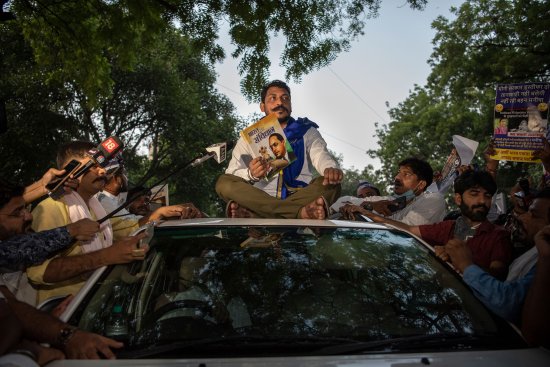
Chandra Shekhar Aazad, 34, is a Dalit—a member of India’s most oppressed caste group. The movement he leads, the Bhim Army, runs schools to help Dalits escape poverty through education. It also practices a distinct brand of assertiveness, sweeping into villages on loud motorbikes to protect victims of caste-based violence and organizing provocative demonstrations against discrimination. In September 2020, when police in the state of Uttar Pradesh delayed investigation of the fatal gang-rape of a 19-year-old Dalit woman, allegedly perpetrated by four dominant-caste men, Aazad and the Bhim Army spearheaded a campaign for justice. The protests and public outcry that followed eventually led to the accused rapists’ arrests. (They deny the charges.) Aazad has also lent his support to several other progressive movements, including recently to farmers protesting against corporate agricultural reforms. He hopes to turn the reach of the Bhim Army—and his own growing popularity—into wins at the ballot box, and in March 2020 launched a political party. Its first real test comes during elections next year in Uttar Pradesh, where Hindu nationalists are politically dominant. Despite the Bhim Army’s muscular stance, Aazad has also cultivated an aura of charismatic approachability through deft use of social media; even Aazad’s luxuriant mustache—a style seen by some dominant castes as a status symbol—is a form of resistance. By challenging the notion that Dalits should be deferential, says Dhrubo Jyoti, a Dalit journalist at the Hindustan Times, Aazad and the Bhim Army “have visually and psychologically changed the pitch of caste resistance in India.” —Billy Perrigo